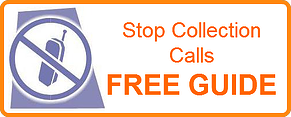If you have debts that are delinquent, you may get a summons. Do you have to respond to a summons?

The simple answer is "no", but that doesn't mean you should ignore a summons!
If you have so much debt that you cannot keep up with the payments, at some point, some or all of these debts will become "past due", "delinquent", or "charged off" for non payment.
In some cases, the original creditor or the debt collector or debt buyer may decide to retain an attorney to file a claim against you.
Here's what usually happens:
When you miss a payment or two, you start to get the phone calls and letters. This is the original creditor trying to get you to start making the payments again. During the first 60-90 days, the account most likely stays with the original creditor as they continually try to get you to start making payments.
As annoying as the phone calls are, you cannot legally stop the calls as long as the account is still with the original creditor. You can, however, choose to ignore the calls, but this is not your best tactic.
You can answer the phone and try to explain your situation, but this is usually a waste of time. It would be better for you to write the original creditor and briefly explain your financial circumstances and that you fully intend to repay this debt, but cannot do anything at this time.
This may or may not buy you some time. Most likely, the original creditor will offer you some kind of HARDSHIP PLAN, but BEWARE! Most Hardship Plan offers only delay the inevitable...you will have to repay 100% of this debt plus interest, late fees, annual fees and possibly over-the-limit penalties!
If the original Creditor is unsuccessful in getting you to start paying, they may decide to place the account with a DEBT COLLECTOR. Here where things are starting to get really serious.
At first, you'll receive some letters, telling you what you already know...
THIS ACCOUNT IS PAST DUE!
It will explain that you must bring you account up to date or face serious consequences (or something like that).
Then, the phone calls start! Although the Fair Debt Collection Practices Act has helped stop many ruthless and harassing debt collectors, they are still out there!
According to the FDCPA, you have the legal right to make them stop calling you!
Click below:
But now that the calls have stopped, the original creditor, the debt collector or debt purchaser may decide to take legal action.
A word about DEBT BUYERS:
When a debt goes unpaid for a long time and a debt collector (or several debt collectors) are unsuccessful collecting the debt, it normally will be charged off as "uncollectable". There are thousands upon thousands of these debts out there and there is are companies who will buy large groups or lots of debt at pennies on the dollar, planning on getting paid on enough to make a profit.
So, if they decide to have a claim filed, they would retain an attorney (licensed in your state) to file a COMPLAINT in your county courthouse.
By-the-way...
It's not always logical when or why a debt collector or debt buyer decides to file a claim.
If you are retired, disabled, or unemployed, you are going to be exempt from wage or bank garnishment.Back to the process:
The court will prepare a SUMMONS, and it will SERVED or delivered to you. This is usually done by a sheriff or company paid to serve the summons. Some people think that they can avoid receiving the summons by not answering the door or by lying to the person or sheriff trying to serve the summons.
I don't advocate this tactic, as you could face legal charges for not telling the truth, and eventually, you will be served. You may be able to "buy some time".
If you can come up with a lump sum of approximately 50%-75% of the amount of the claim, they may accept that as a settlement. The amount they are willing to accept will depend on several factors, specifically your financial situation:
- employed (W-2 or self employed)
- unemployed
- retired
- disabled
- buying or renting
If you are exempt from wage or bank levy, but are a home owner (or have significant equity in your home), you may want to get this account settled to avoid a lien being placed on your property.
If you do not have funds available to offer a lump sum settlement, in most cases, you will be able to arrange a repayment of the debt by making monthly payments. Sometimes, this will be called a STIPULATED AGREEMENT before or after a judgment. As long as you complete the terms of the agreement, no further legal action will happen.
On the other hand, if you start such an agreement and miss a payment, they may deem the agreement "VOID", and start the legal process again!
BOTTOM LINE...
It is not in your best interest to ignore a summons!
In fact, if you are in a stressful financial situation, take action before your account(s) go this far! Your chances of successful negotiation are much better if you can get something worked out BEFORE a judgment is awarded!
Photo credit: Kevin B 3




 If you live in Texas, you have some unique laws that make debt settlement a great way to eliminate old credit card or other unsecured debts.
If you live in Texas, you have some unique laws that make debt settlement a great way to eliminate old credit card or other unsecured debts.




 you hundreds of dollars!
you hundreds of dollars!




